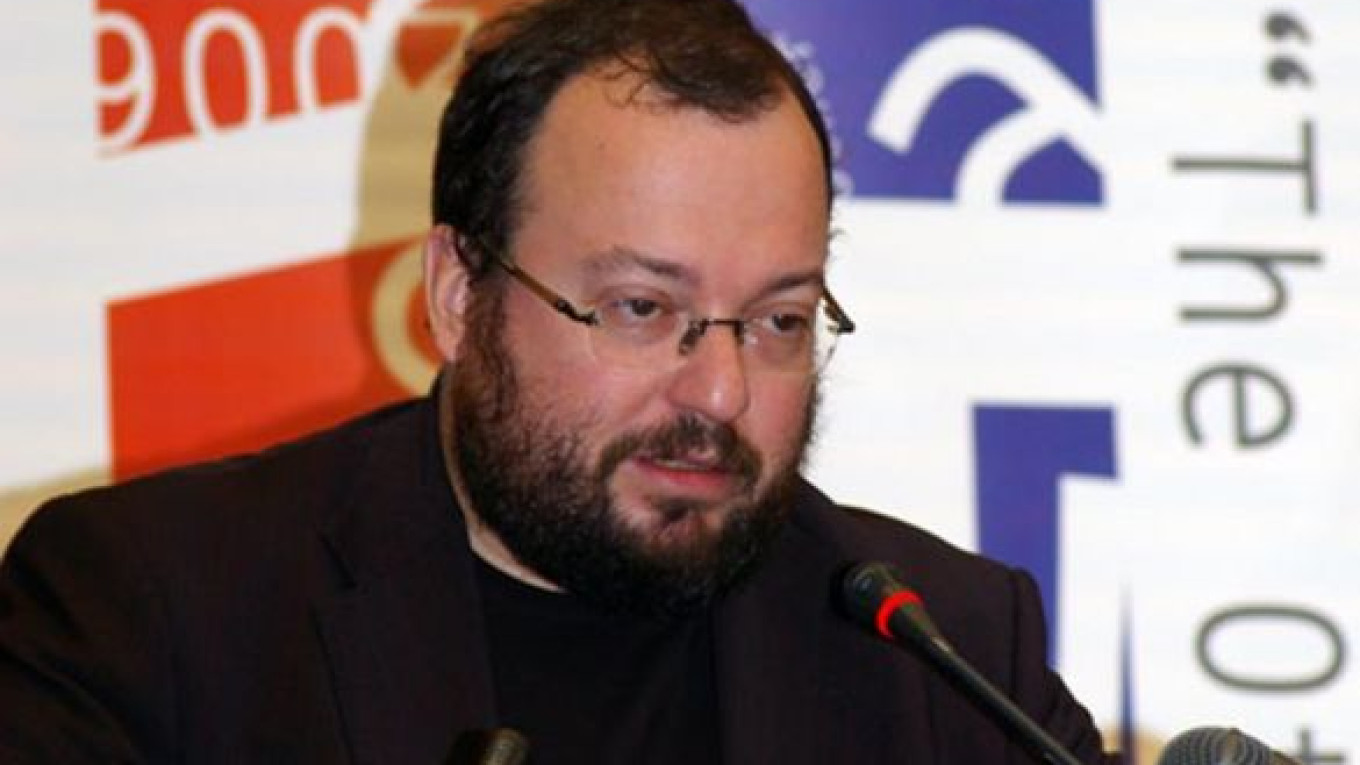Outspoken Kremlin critic Stanislav Belkovsky said Thursday that he wouldn't retract his criticism of the Russian Orthodox Church, even though investigators have summoned him for questioning over an article he penned last week.
A day earlier, about 40 lawmakers and senators from all four State Duma factions urged investigators to check for signs of religious extremism in a piece Belkovsky wrote in the Moskovsky Komsomolets daily that accused the church of kowtowing to state pressure and advised Patriarch Kirill to retire to a women's convent.
The article, titled "Pope Shows Patriarch the Way" and published Feb. 15, argued that the Russian Orthodox Church was "effectively founded by Generalissimo Josef Stalin," who taught church leaders to be "the state's agent among those who don't deny the existence of God."
Belkovsky, an independent political analyst, said the church under its leadership "has fallen irreversibly into the abyss of serving state interests" and "while it remains an appendage of the executive branch, real political changes are impossible in the country."
Contacted by phone Thursday, Belkovsky said "there are no legal grounds for my prosecution" and that he stood by his arguments.
"If the case goes to court, a hearing would be an opportunity for me to proclaim everything I want to say about United Russia and the Russian Orthodox Church," he said. Belkovsky is expected to attend questioning Friday.
He said such a hearing would serve United Russia's interests by distracting public attention away from recent corruption scandals involving senior party figures.
"I will defend myself in any way possible, but I'm not very optimistic about my destiny. I could be arrested any day," said Belkovsky, a Kremlin insider during Vladimir Putin's first two terms as president.
On Wednesday, United Russia said in a statement that Belkovsky's article contained "coarse, unfounded attacks on the church" and incited religious hatred, an offense that carries a maximum sentence of five years in prison.
Andrei Isayev, vice secretary of the ruling party's general committee, went a step further, calling Belkovsky a "white-ribbon revolutionary." The white ribbon is a symbol of the anti-government protest movement that sprung up in the wake of disputed State Duma elections in December 2011.
United Russia lawmakers seem to have been particularly riled by a section of Belkovsky's article that proposed disbanding the church and transforming it into a union of independent parishes in which pastors elect their bishops and bishops the patriarch. The church currently has a top-down structure.
Orthodox believers' reaction to Belkovsky's article was mixed, with the Union of Orthodox Citizens seeing it as "a provocation," while Andrei Kurayev, a leading theologian, told RIA-Novosti that he was willing to sit down with Belkovsky to discuss his arguments.
Religion in Russia has experienced a major revival since the Soviet era, and about 70 percent of Russians now identify themselves as Orthodox Christians, although a far smaller percentage regularly attend church services.
Contact the author at [email protected]
Related articles:
A Message from The Moscow Times:
Dear readers,
We are facing unprecedented challenges. Russia's Prosecutor General's Office has designated The Moscow Times as an "undesirable" organization, criminalizing our work and putting our staff at risk of prosecution. This follows our earlier unjust labeling as a "foreign agent."
These actions are direct attempts to silence independent journalism in Russia. The authorities claim our work "discredits the decisions of the Russian leadership." We see things differently: we strive to provide accurate, unbiased reporting on Russia.
We, the journalists of The Moscow Times, refuse to be silenced. But to continue our work, we need your help.
Your support, no matter how small, makes a world of difference. If you can, please support us monthly starting from just $2. It's quick to set up, and every contribution makes a significant impact.
By supporting The Moscow Times, you're defending open, independent journalism in the face of repression. Thank you for standing with us.
Remind me later.


